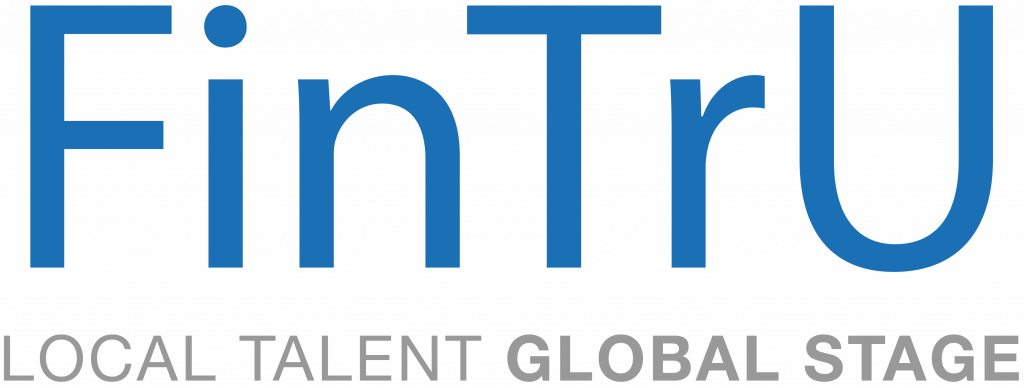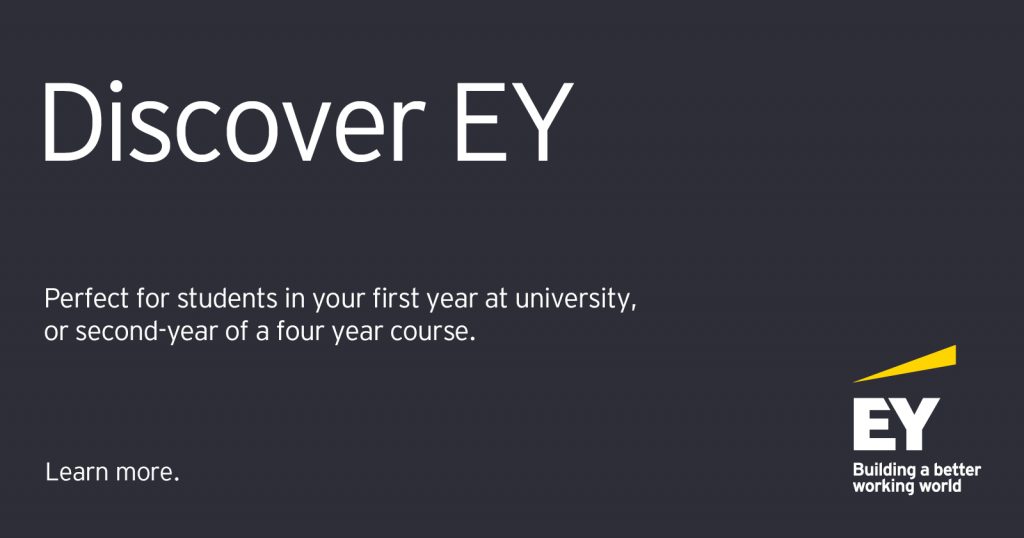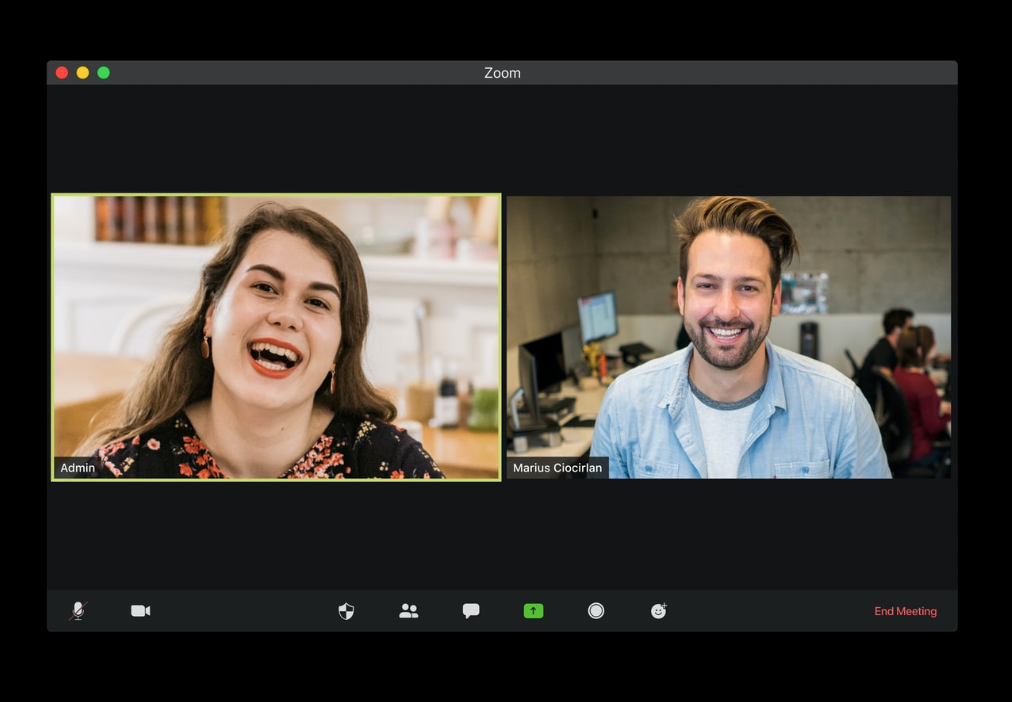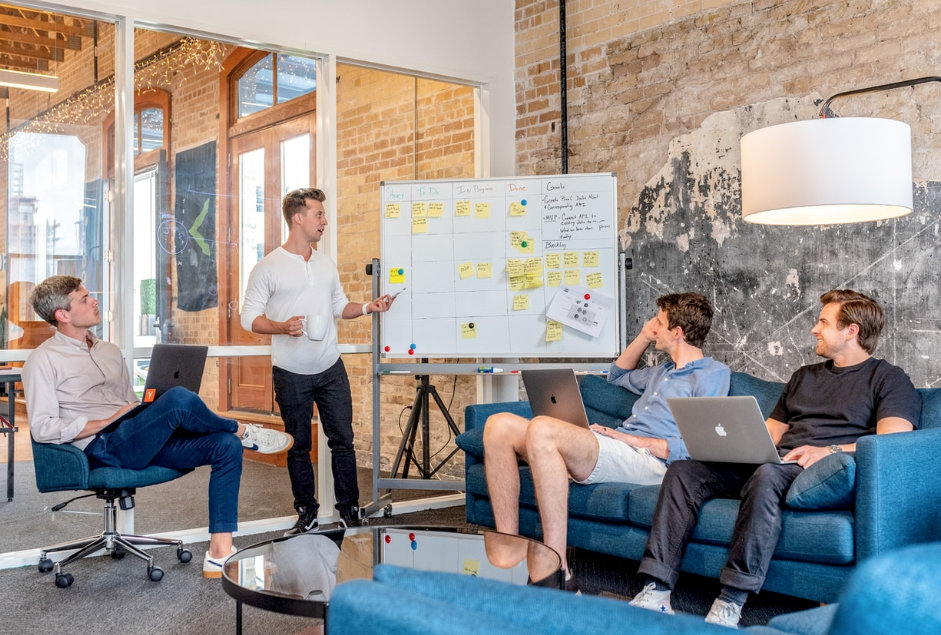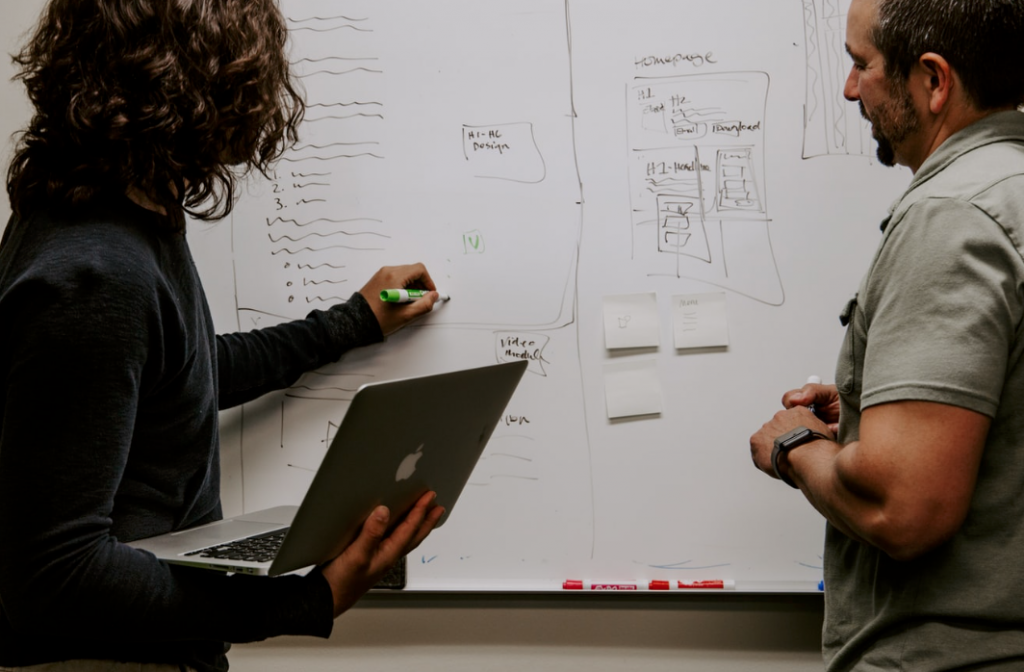Viktorija Mikalauskaite, a Senior Associate in the Legal Department at FinTrU on the skills you need to be a future leader including the art of influencing, persuading and teamwork.

Could you just tell us a bit about influencing skills, what are they and you know, what do they involve?
So um, influencing skills, you know, they are skills that you use to persuade someone that your idea is better than someone else’s idea that your suggested terms or make better sense and persuade someone to change their ways of thinking of but without forcing them to do so. But at the same time, respecting opinions of others and compromising or mutual agreement cannot be found, and it’s better to compromise than lose. What I like to say it is a combination of communication and persuasion and negotiation, but it also involves confidence which is an extremely important factor. And if either one of those elements are missing, then you will not be able to influence effectively, you need to be able to communicate productively, it needs to be changing your communication style, depending on personality or profession of a person that you’re communicating with or trying to influence. So whether it’s your employer, or a colleague or a client, the communication style will be different now. And an influencing it’s also about, you know, convincing someone to get on board and to gain that approval support from your team or employer on your suggested ideas. So ultimately, what you’re looking for from influencing someone is their backup. And, as I mentioned, before, communication and persuasion and negotiation, they all work hand in hand with confidence, you need to believe in yourself, you need to believe in your skills, you need to believe in your ability and your ability to influence and persuade. And, you know, that comes with time and practice and experience.
Is there anything else that you’d watch out on that, and any other techniques that we produce?
I mean, there are several techniques that that, you know, graduates can use in the workplace, when it comes to influencing. The first one that comes into my mind is, you know, know your audience, know the people you work with, or the people you work for. So, you know, all of you who joined today, at some stage, you will be working with people that have different personalities, different level of experience, different needs, different roles, get to know them, don’t be afraid to flex your communication style, as I said, previously, when dealing with people from or, or employees from different backgrounds. Identify who you will be reporting to, and how much influence they have on the decision that company or team makes, you know, and, and really, you know, invest the time and getting to know people that you’re trying to influence and build those relationships, you know, you need to build the relationship to show how ambitious you are, and, you know, and to, to build your own personal brand that will distinguish you from the others. And, you know, if you show that you’re ambitious, that you can, then then you get noticed, people will remember you. And another technique, you know, build trust, which is also linked to know your audience. So, generally, people like to be a nurturing environment to know, but those who listen and show compassion and concern, that’s how you become trustworthy, you know, when you show that care and support to someone, you know, build upon that trust and build on the trust with your employer, by delivering work on time meeting deadlines, you know, go over, going over and above what’s expected from you, and, you know, volunteer to take extra workload if your capacity allows. And I suppose another one is, demonstrate your credibility, you know, you want to, you want to establish your reputation and prove that you’re reliable. And you know, by showing that you’re credible to your claim that you’re working with, or your employer or your client, you know, that helps to persuade them to agree with what you’re saying. And that can be achieved by, you know, being one of the strongest performers or top performers. And showing constant improvement and your quality of work and working well under pressure and, and even being accountable for your own mistakes. You know, if you made a mistake, raise your hand. Admit it, you know, don’t hide it. Don’t. Don’t defend it. Don’t blame it on someone else. Yeah, I mean, that will show that you have that sense of responsibility and credibility.
So what kind of skills do you need to put together to provide like a good case study in person or even in writing?
Well, you need to research you need to prepare, and you need to practice and, you know, communicate in a concise and clear manner. And whether it’s on paper or in person. And it’s important that your audience understands what you’re trying to say. And that you put your point across effectively. And, you know, you need to, if you if you’re presenting your case in person, think about your tone, you know, assess your audience to tailor your tone. So whether it’s a formal tone that should be using or more casual, but always remain professional. And that’s, that’s extremely important. And no, you’re topping inside out, you know, you don’t want to get stuck, especially the asked questions, and just spent about, you know, what is the purpose of that case? What is the goal here? And what do you want people to take away from that case?
Communication is extremely important. And being able to communicate effectively is essential for business. And it’s a foundation of influencing skills that I have touched on previously. And it’s also the basis for leadership and teamwork. And so it’s, you know, when you think about, you know, by communicating effectively, what that means is, you know, thinking about the content of what you’re going to say, or the content of a speech or presentation that you’re going to deliver, you know, sometimes less is more. And you know, how you present yourself when communicating, being able to answer the questions, as well as, ask good questions. You know, that’s, that’s a skill in itself. And, you know, when we talk about appealing to the head and to the heart, that for me goes back, you know, to know your audience. And if you know, your audience, and you can assess, then you can tailor your communication style, and you can tailor your tone. But you can also tailor the content of what you’re going to say as well.
What are some of the interview questions that kind of assess your influence and skills and your persuasiveness?
If an employer wants to assess your influencing skills of persuasiveness, they will most likely ask you a scenario based question. Okay. They would start with, give me an example of or tell me about that something or how you would approach certain situation. So, you know, an example can be, you know, you might be asked, tell me about the time you had to communicate effectively? Well, tell me about the time you had to change your communication style for different audience. So here, think about, maybe you delivered a presentation as part of the coursework that received the great feedback, or maybe you handled a social media account or, you know, for university or social. Yeah, that received lots of followers and became very popular, both very good examples to use, and, you know, for graduates. And you might be asked, you know, tell me about the time you worked with a difficult person. And, you know, here an employer would want to know if you have communication skills, you know, did you flex your style? What tone did you use when you talk with a difficult person? And, you know, did you confront that person over his or her behaviour? Another question you might be asked is, you know, tell me about the time, you know, you have persuaded someone to do something that, that, that they didn’t want to do. If you and that you both, you know, think about it being a part time job, and you convince your colleague to stay in the company, even though he or she received another job offer, you know, or maybe you don’t have a job, you know, if you, perhaps you convinced a person in your class, to join a charity event or similar initiative by university? Also, you know, a very good example to use for that question. And another question that, that is, a great question to ask is, tell me about the time you had an argument or disagreement with your teammate? So, this is a great question to ask by employers, because what they will be looking from your answer is that you have communication skills, that you work in a team. And, also, if you have problem solving skills, because, you know, if you had an argument, they’ll need to know how that ended as well.
What are ways that we could develop our skills then?
I mean, there are, there are the best way to develop and influencing skills or getting involved in various group activities, project work, or find a part time job that both involves client facing or customer facing. You need to get involved in the in the group activity because, you know, you, you could you can’t influence someone, if you’re not a part of the team, you know, at the same time, you can, you have a great insight in how others lead in the team, or you know, or what sort of ideas they have, you know, or ways that they use to influence someone and in the team that you pour it off. And, I mean, public speaking is a great way to develop influencing skills, you know, it will improve your confidence, it will improve your communication skills, and it will also help, you know, ways of different ways of interacting with audience Yes. Also, in university debates, I don’t know if you still have them in Queens, but university that is, is a great way to also develop influencing skills. And, you know, you don’t need to participate if you don’t want to, but simply by, you know, by watching the debate, you can have great insight. You know, as I mentioned previously, watching how others lead and how others communicate with the audience.
How do we develop then leadership potential? And how do recruiters assess leadership potential?
It’s a good question. And, you know, some people are natural leaders. But everyone can develop a necessary skill set. To become a leader, a great way to develop leadership potential is by taking on more responsibility. So volunteering to take an extra workload at work, if your capacity allows, but not taking any more than you can handle. And you need to go over and above than what’s described in your job description if you want to grow and progress. Don’t be afraid to step out of your comfort zone. Yes, and honestly, this is one of the best ways to learn something new. And it will certainly help to develop your personal brand and get noticed by people. And, you know, seek opportunities that allow you to develop leadership potential. Yeah, keep on top of university updates, to see if there are any project work going on, that you can take part in. So for example, maybe you can be a mentor, or maybe you know, you can get involved in the induction week, welcoming new students, or even coaching a sports team, you know, and equally important, and, you know, offer your encouragement and your guidance to people that you coach or people you work with, or even students in your class because leadership can be practised anywhere, as long as you keep learning.
Could you name a couple of leadership skills and qualities?
These are so consistent, so many skills or qualities, you know, and the list goes on and on and on. But and some of them are you know, they should, you know you need to be ambitious, that’s your goal and focus on problem solving and organisation need to be organised, and keep the track and track the progress of work. And make sure to communicate that beats with the team, company client or to one another one is delegation. It’s very important, you know, you can’t do everything yourself, you need to learn how to delegate. You don’t delegate you for you to bring yourself up, but you delegate, you know, facilitate the workflow and help others in the team to grow and progress by allocating them the responsibility and showing that trust time management. Be aware of the deadlines. And always think how can I improve turnaround times, and learn prioritise. And once you once you learn how to prioritise, then you prioritise appropriately.
How would you persuade someone who doesn’t seem interested in a project to get involved with the team?
And well, I mean, you need to first of all, and that’s a very good question. But I think I touched on this a little bit as well. Whatever I talked about, know your audience. So you know, if someone is reluctant to join the project team, then you encourage them to do so. You know, if you know that person and what they’re looking for their goals and why they’re not interested in the project. Try to find Is there something in the project that you can you can use to encourage them to join. So for example, maybe the project, create some opportunities that later can lead to better things or promotion or a payrise. You know, and you need to know once. First of all you need to know the project, what is the project, what the project entails? What are the skills that you can gain while I’m working on that project. And then knowing what the person is looking for, if he say no to that opportunity, while he or she is saying no, you know, what, what, what different? You know, what are they looking for exactly? And then, and then just find them, just find, you know, something that attracts them. So find something that would say, oh, by the way, you know, these are the skills that you will learn in the project. And by the way, do you know, did you know that, you know, people do well, then they get promoted to certain level or they moved to Fairfax?
So how do you strike a balance between influencing and forcing your opinion?
Yeah, it is a good one. And so yes, as I said, influencing is persuading or convincing someone to do something, but without forcing them to do. Compromise was what you mentioned was not, yeah, so there’s a fine line, you know, you have to, you know, at some stage, you won’t be able to convince someone, or you won’t be able to persuade someone, but you have to find a compromise. And so rather than walking away from it, you’ll have to find a compromise. But I think there is a fine balance between forcing people to do something, rather than influencing. And it’s always thing professional, you know, and using the skills that that I mentioned today, earlier today, to, you know, speak professional, knowing your tone, knowing what tone do you use, you know, again, if you speak with your colleague, and the and your employer, you’ll use a different sort of tone. So you know, it’d be forcing someone your opinion, then your tone will change, if you’re trying to influence someone with the opinion with the communication style that suits a person. And then that’s not forcing, that’s talking. That’s a discussion that that leads to convincing or persuasion. So it’s the tone and assess the person who you’re talking with. And, and if you’re stuck, then try to see if there is a middle ground or a compromise that you can both come up with.
Interested in working for FinTrU? Rewatch our recent @QUBCareers Instagram Live sessions featuring FinTrU and browse their current opportunities on theGradfest2021 site.
